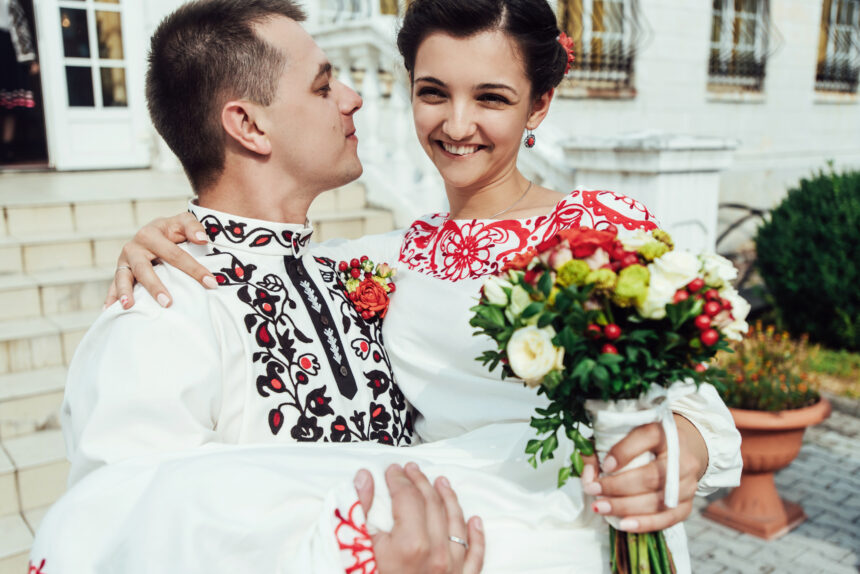Oltenia Wedding Customs: Traditional Dances and Songs
Oltenia, a picturesque region in southern Romania, is renowned for its rich cultural heritage, particularly when it comes to wedding customs. These traditions are deeply rooted in the community’s history and reflect the values, beliefs, and artistic expressions of the Oltenian people. Among the most vibrant aspects of these customs are the traditional dances and songs that accompany wedding celebrations, creating a festive atmosphere that unites families and friends.
The Significance of Dance in Oltenia Weddings
Dance plays a pivotal role in Oltenia weddings, serving as a medium for storytelling, celebration, and community bonding. The dances are not merely entertainment; they are a way to express joy, convey cultural identity, and honor ancestral traditions. Some of the most popular traditional dances include:
- Hora: A circular dance that symbolizes unity and togetherness, where participants hold hands and move in a synchronized manner.
- Brâul: A lively dance characterized by quick footwork and energetic movements, often performed by men to showcase their strength and agility.
- Învârtita: A spinning dance that involves intricate footwork and is typically performed by couples, symbolizing the bond between the bride and groom.
These dances are often accompanied by live music, typically featuring traditional instruments such as the violin, accordion, and flute. The musicians play folk tunes that have been passed down through generations, adding to the authenticity of the celebration.
Traditional Songs: The Heartbeat of Oltenia Weddings
Just as dance is integral to Oltenia weddings, so too are the traditional songs that resonate throughout the festivities. These songs often tell stories of love, family, and the journey of the couple. They serve to evoke emotions and create a sense of nostalgia among the guests. Some notable types of songs include:
- Colinde: Traditional carols that are often sung during the wedding ceremony, celebrating the union of the couple and invoking blessings from the ancestors.
- Doine: Melancholic songs that express longing and love, often sung by the bride or her family to convey their emotions during the wedding.
- Jocuri: Upbeat songs that accompany the dances, encouraging participation from all guests and fostering a sense of community.
These songs are not only performed during the wedding but are also an essential part of the pre-wedding rituals, such as the “botez” (baptism) of the couple, where family and friends gather to sing and celebrate the upcoming union.
Case Studies: Real Weddings in Oltenia
To illustrate the vibrancy of Oltenia wedding customs, let’s look at a couple of real-life examples. In a recent wedding held in the village of Băilești, the couple incorporated traditional elements by inviting local folk dancers and musicians. The event featured:
- A grand Hora dance that involved all guests, symbolizing the community’s support for the couple.
- Live performances of Doine, which moved many attendees to tears, reflecting the emotional depth of the occasion.
- A Brâul competition among the men, showcasing their skills and adding a playful element to the celebration.
This wedding not only honored traditional customs but also reinforced community ties, as many attendees participated in the dances and songs, creating a memorable experience for everyone involved.
Statistics on Cultural Preservation
According to a study conducted by the Romanian Ministry of Culture, over 70% of weddings in rural Oltenia still incorporate traditional dances and songs. This statistic highlights the region’s commitment to preserving its cultural heritage amidst modernization. Furthermore, local cultural associations are actively working to promote these traditions through workshops and performances, ensuring that future generations remain connected to their roots.
Conclusion: The Enduring Legacy of Oltenia Wedding Customs
Oltenia wedding customs, particularly traditional dances and songs, are a vibrant expression of the region’s cultural identity. These practices not only enhance the celebratory atmosphere of weddings but also serve as a means of preserving history and fostering community bonds. As seen through real-life examples and supported by statistics, the commitment to these traditions remains strong, ensuring that the rich heritage of Oltenia continues to thrive for generations to come. Embracing these customs allows individuals to connect with their ancestry while celebrating love and unity in the present.
